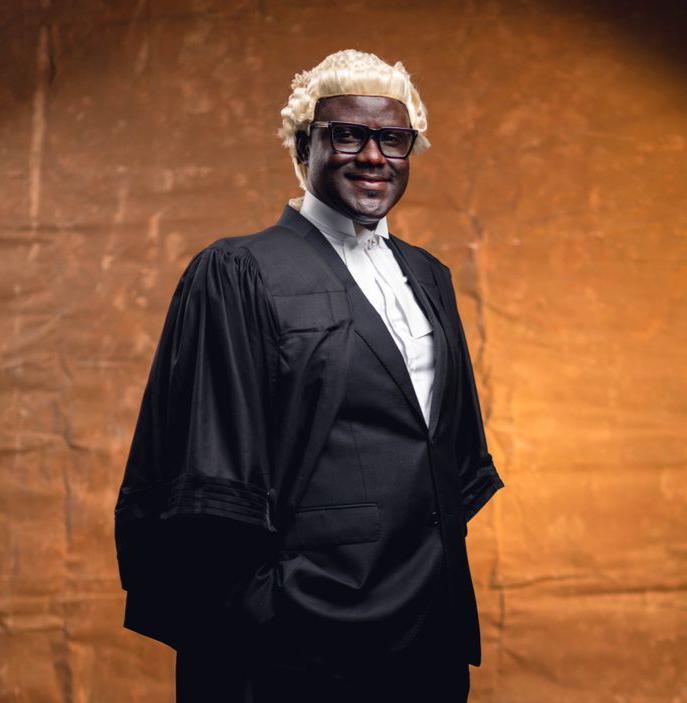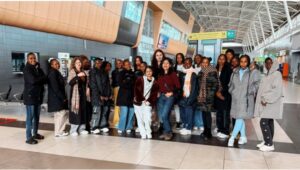
Three security experts have urged the United Nations (UN), the African Union (AU) and ECOWAS to step-up their efforts to stabilize Mali, Burkina Faso and other countries in the Sahel Region.
The experts, who made the appeal include Dr Festus Aubyn, Research Fellow, Faculty of Academic Affairs and Research (FAAR), Kofi Annan International Peacekeeping Training Centre (KAIPTC); Mr Mutaru Mumuni Muqthar, the Executive Director, West Africa Centre for Counter-Extremism; and Chief Superintendent of Police Adofiem Raymond Wejong, the Commanding Officer, Counter-Terrorism Department of the Ghana Police Service.
According to the trio, the cross-border and trans-regional nature of terrorism in West Africa suggests that no single country could tackle the treat alone.
They expressed the view that stabilizing Mali and Burkina Faso and tackling terrorism in the Sahel Region depended on putting in place a long-term plan for resolving the issue.
The trio, made the appeal on Thursday during a panel discussion at the KAIPTC’s Reflection on Security Dialogue Series dubbed “Is West Africa Becoming the New ‘Arc’ of Instability in the Region?”
West Africa seems to be the new hub of terrorists’ activities in recent times, as Burkina Faso, Benin and Togo- which were hitherto not affected by the activities of violent extremist groups, have increasingly been targeted by Ansaroul Islam, the Macina Liberation Front and other criminal organisations.
With plots and tactics, and through series of attacks such as kidnappings and bombing, these radical extremist groups continue to undermine efforts at strengthening governance and security in their areas of operation.
Resultantly, these groups have generated mixed reactions from different sections of society.
The panel discussion provided a platform, which contributed to demystify the complex security dimensions of the surge in terrorists’ attacks in the sub-region.
Dr Aubyn speaking on the topic “Regional Responses to Terrorism in West Africa: The Politics, Pitfalls and Prospects”, noted that responding to terrorism required a composite approach that takes into consideration its domestic and transnational dimension.
He said based on this common understanding, regional counterterrorism strategies and ad hoc response structures had been established to complement the national counterterrorism efforts.
These include the ECOWAS counterterrorism strategies and ad hoc response structures mandated by the AU namely, the Multinational Joint Task Force (MNJTF) against Boko Haram and the G5 Sahel Joint Force.
Mr Muqthar speaking on the topic “Preventing Radicalization, Preventing Terrorism in West Africa”, said in the past 10 years, West Africa had served as a notorious and sustained epicenter for radicalization and terrorists violence.
He said an estimated more than 7,000 radicalized youth were believed to have joined in terrorists’ campaign during this period.
He said just like Togo and Benin, Ghana’s strong interaction with and proximity to Burkina Faso, the Ivory Coast, Nigeria and Mali; all thrust for terrorists violence, implies that the country was not immune to attacks.
He said the existence of similar vulnerability factors continue to provoke predictions and fears that the country could become the next new frontier for terrorism in West Africa.
“How states and the civilian community in the affected and yet-to-be affected countries response to these will define future security trends for the entire region.”
Chief Superintendent Wejong said the trend of terrorists’ incidents in Burkina Faso very close to Ghana, understandably provoking the current national posture, civil outcry and the various media narratives validates the saying that “when your neighbour’s beard is on fire you put water by yours”.
He said the good news was that Ghana’s national strategic reaction had transcended beyond putting water close to their beard extending to creating a fire belt around the nation and assisting their neighbours to quench theirs.
Mr Charles Wiredu, a Deputy Minister of Foreign Affairs and Regional Integration, who was the guest speaker, said Ghana’s credential as a peaceful democratic nation in the sub-region, places more responsibility on it to ensure that its neighbours were also at peace.
Air Vice Marshall Griffth S. Evans, the Commandant, KAIPTC, said Ansaroul Islam, Macina Liberation and a coalition of radical Islamic groups known as the Group for the Support of Islam and Muslims had taken advantage of deteriorating security in parts of West Africa to perpetuate their agenda.
Dr Kwesi Aning, Director, FAAR, KAIPTC, said there was absolutely no doubt in the minds of people that the threat of terror was becoming a challenge to their daily lives.
Source: ghananewsagency.org






